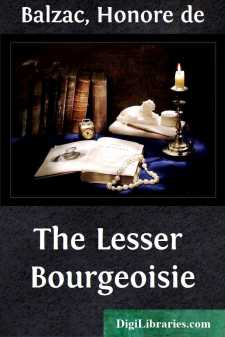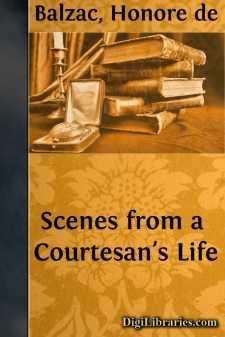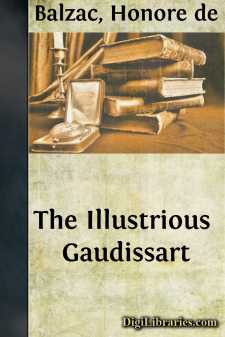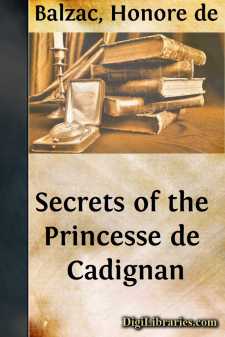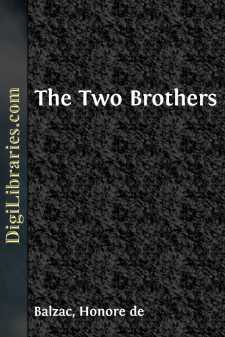Categories
- Antiques & Collectibles 13
- Architecture 36
- Art 48
- Bibles 22
- Biography & Autobiography 813
- Body, Mind & Spirit 142
- Business & Economics 28
- Children's Books 13
- Children's Fiction 10
- Computers 4
- Cooking 94
- Crafts & Hobbies 4
- Drama 346
- Education 46
- Family & Relationships 57
- Fiction 11828
- Games 19
- Gardening 17
- Health & Fitness 34
- History 1377
- House & Home 1
- Humor 147
- Juvenile Fiction 1873
- Juvenile Nonfiction 202
- Language Arts & Disciplines 88
- Law 16
- Literary Collections 686
- Literary Criticism 179
- Mathematics 13
- Medical 41
- Music 40
- Nature 179
- Non-Classifiable 1768
- Performing Arts 7
- Periodicals 1453
- Philosophy 64
- Photography 2
- Poetry 896
- Political Science 203
- Psychology 42
- Reference 154
- Religion 513
- Science 126
- Self-Help 84
- Social Science 81
- Sports & Recreation 34
- Study Aids 3
- Technology & Engineering 59
- Transportation 23
- Travel 463
- True Crime 29
Sort by:
by:
Honore de Balzac
STUDY OF A WOMAN The Marquise de Listomere is one of those young women who have been brought up in the spirit of the Restoration. She has principles, she fasts, takes the sacrament, and goes to balls and operas very elegantly dressed; her confessor permits her to combine the mundane with sanctity. Always in conformity with the Church and with the world, she presents a living image of the present day,...
more...
by:
Honore de Balzac
CHAPTER I. THAT WHICH WAS LACKING TO PIERROTIN'S HAPPINESS Railroads, in a future not far distant, must force certain industries to disappear forever, and modify several others, more especially those relating to the different modes of transportation in use around Paris. Therefore the persons and things which are the elements of this Scene will soon give to it the character of an archaeological...
more...
by:
Honore de Balzac
CHAPTER I. DEPARTING PARIS The tourniquet Saint-Jean, the narrow passage entered through a turnstile, a description of which was said to be so wearisome in the study entitled "A Double Life" (Scenes from Private Life), that naive relic of old Paris, has at the present moment no existence except in our said typography. The building of the Hotel-de-Ville, such as we now see it, swept away a whole...
more...
by:
Honore de Balzac
CHAPTER I. THE CHATEAU Les Aigues, August 6, 1823. To Monsieur Nathan, My dear Nathan,—You, who provide the public with such delightful dreams through the magic of your imagination, are now to follow me while I make you dream a dream of truth. You shall then tell me whether the present century is likely to bequeath such dreams to the Nathans and the Blondets of the year 1923; you shall estimate the...
more...
by:
Honore de Balzac
CHAPTER I. EXPOSITION Notwithstanding the discipline which Marechal Suchet had introduced into his army corps, he was unable to prevent a short period of trouble and disorder at the taking of Tarragona. According to certain fair-minded military men, this intoxication of victory bore a striking resemblance to pillage, though the marechal promptly suppressed it. Order being re-established, each regiment...
more...
by:
Honore de Balzac
ESTHER HAPPY; OR, HOW A COURTESAN CAN LOVE In 1824, at the last opera ball of the season, several masks were struck by the beauty of a youth who was wandering about the passages and greenroom with the air of a man in search of a woman kept at home by unexpected circumstances. The secret of this behavior, now dilatory and again hurried, is known only to old women and to certain experienced loungers. In...
more...
by:
Honore de Balzac
CHAPTER I The commercial traveller, a personage unknown to antiquity, is one of the striking figures created by the manners and customs of our present epoch. May he not, in some conceivable order of things, be destined to mark for coming philosophers the great transition which welds a period of material enterprise to the period of intellectual strength? Our century will bind the realm of isolated...
more...
by:
Honore de Balzac
CHAPTER I. THE LAST WORD OF TWO GREAT COQUETTES After the disasters of the revolution of July, which destroyed so many aristocratic fortunes dependent on the court, Madame la Princesse de Cadignan was clever enough to attribute to political events the total ruin she had caused by her own extravagance. The prince left France with the royal family, and never returned to it, leaving the princess in Paris,...
more...
by:
Honore de Balzac
CHAPTER I In 1792 the townspeople of Issoudun enjoyed the services of a physician named Rouget, whom they held to be a man of consummate malignity. Were we to believe certain bold tongues, he made his wife extremely unhappy, although she was the most beautiful woman of the neighborhood. Perhaps, indeed, she was rather silly. But the prying of friends, the slander of enemies, and the gossip of...
more...
by:
Honore de Balzac
CHAPTER I. SERAPHITUS As the eye glances over a map of the coasts of Norway, can the imagination fail to marvel at their fantastic indentations and serrated edges, like a granite lace, against which the surges of the North Sea roar incessantly? Who has not dreamed of the majestic sights to be seen on those beachless shores, of that multitude of creeks and inlets and little bays, no two of them alike,...
more...




